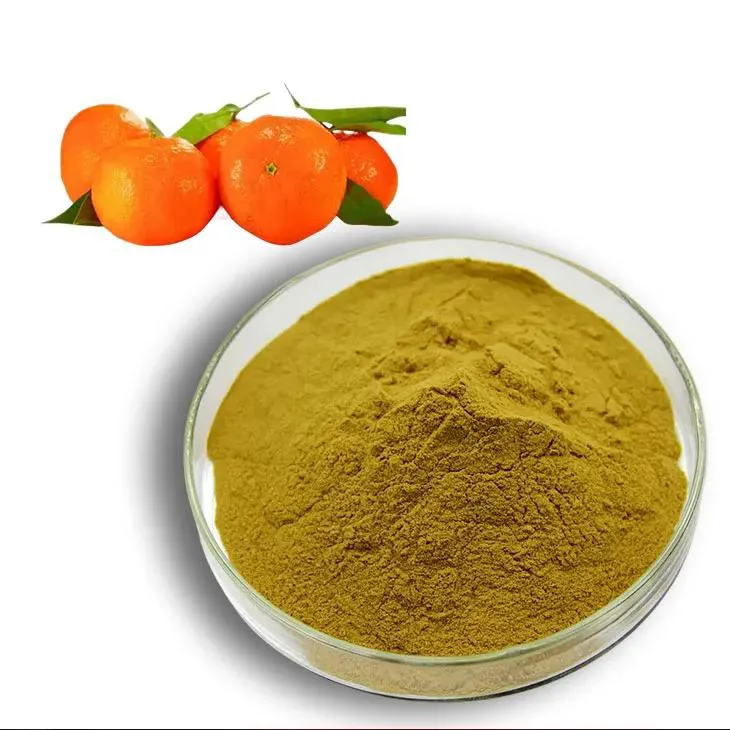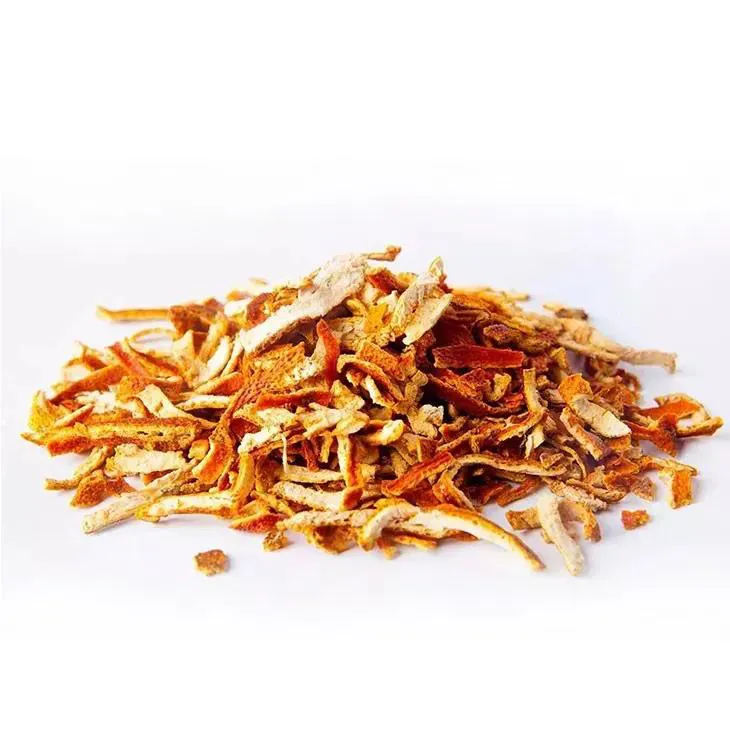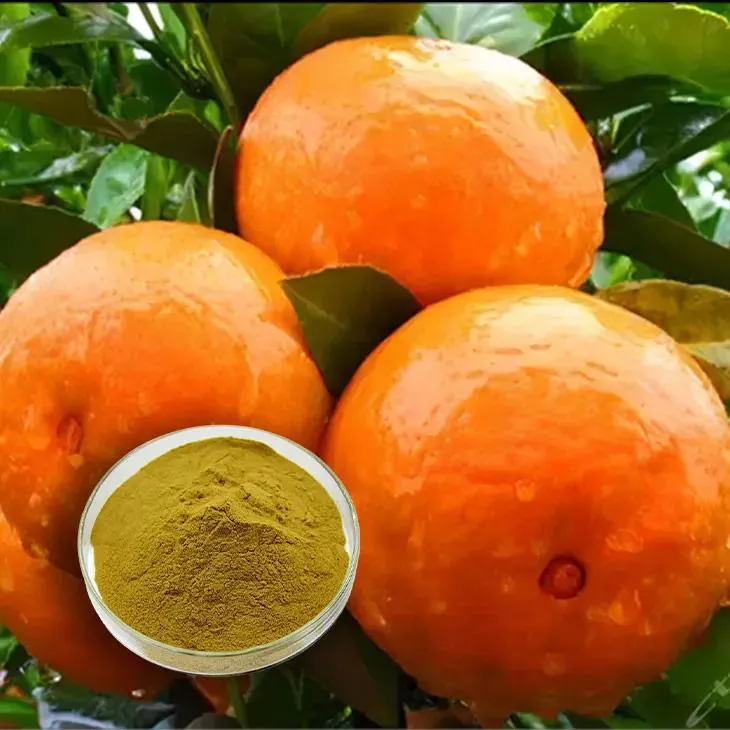- 0086-571-85302990
- sales@greenskybio.com
What is another name for citrus bioflavonoids?
2025-06-20

Exploring the World of Citrus bioflavonoids: Understanding Their Alternative Name and Benefits
The vibrant world of citrus fruits extends beyond their refreshing taste and bright colors to encompass a treasure trove of nutrients and compounds valuable for human health. Among these compounds, Citrus bioflavonoids stand out due to their potent health benefits and integral role in promoting well-being. However, as research and commercial use of these compounds have expanded, so too have the terminologies used to describe them. In particular, Citrus bioflavonoids are often referred to by another name—Vitamin P. This article will explore the significance behind this alternative name, the functions of citrus bioflavonoids, and their impact on health.
Understanding Citrus Bioflavonoids
Citrus bioflavonoids are a group of polyphenolic compounds found predominantly in citrus fruits such as oranges, lemons, limes, and grapefruits. These compounds are credited with both the vibrant pigments in the fruits and various health benefits. Citrus bioflavonoids are known for their antioxidant properties, which help protect the body from oxidative stress, and their role in supporting vascular health.

The Link to Vitamin P
The alternative name, Vitamin P, for citrus bioflavonoids has an interesting historical context. In the 1930s, vitamin discoveries were burgeoning, and Hungarian scientist Albert Szent-Györgyi, credited with discovering vitamin C, identified a compound in citrus fruits that reduced capillary permeability and fragility. This led the scientific community to term these compounds as vitamins, hence coining the term "Vitamin P"—with "P" standing for permeability due to their effect on blood vessel permeability. However, as research advanced, it became clear that bioflavonoids are not true vitamins because the body does not require them to maintain normal physiological functions as it does with genuine vitamins.
Despite their mischaracterization as a vitamin, the benefits of citrus bioflavonoids remained evident. Over time, the term "Vitamin P" fell out of popular usage, but it persists as a nod to the historical discovery and the importance of these compounds in vascular health.

The Health Benefits of Citrus Bioflavonoids
1. Antioxidant Properties: Citrus bioflavonoids possess powerful antioxidant capabilities, making them essential in combating oxidative stress caused by free radicals. This oxidative stress, when unchecked, can lead to chronic diseases and accelerate aging processes.
2. Enhancing Vitamin C Absorption: Citrus bioflavonoids often occur alongside vitamin C in nature and enhance its absorption and efficacy within the body. This symbiotic relationship boosts the immune system and amplifies the protective effects vitamin C has on collagen production and skin health.
3. Support for Vascular Health: One of the primary reasons citrus bioflavonoids were initially referred to as Vitamin P relates to their support of blood vessels. They help strengthen capillaries and reduce permeability, thereby improving vessel integrity and reducing the risk of vascular disorders.
4. Anti-inflammatory Effects: Citrus bioflavonoids exhibit anti-inflammatory properties that can support a reduction in inflammation-related conditions, including arthritis and inflammatory bowel disease.
5. Allergy Relief: Some studies suggest citrus bioflavonoids, such as Quercetin, may act as natural antihistamines, providing relief from allergy symptoms by inhibiting the release of histamines.

Natural Sources of Citrus Bioflavonoids
While citrus bioflavonoids are present in abundance in citrus fruits, they are particularly concentrated in the peels, pulp, and white pith. To maximize intake, individuals can consume whole citrus fruits with minimal processing. Here are some rich natural sources:
- Oranges: Whole oranges, especially the inner white skin, are rich in citrus bioflavonoids.
- Lemons: Often used for their juice, the peel and pith offer the highest concentration of bioflavonoids.
- Grapefruits: Both the fruit and peel provide ample amounts of these beneficial compounds.
- Limes: Ideal for beverages and flavoring, limes are also an excellent source of bioflavonoids.
- Tangerines and Mandarins: These smaller citrus fruits contain high levels of bioflavonoids in their skins and segments.
Incorporating Citrus Bioflavonoids into the Diet
To incorporate more citrus bioflavonoids into the diet, individuals should focus on consuming a diverse range of citrus fruits. Here are some ideas:
- Add slices of orange or grapefruit to salads for a burst of flavor and nutrition.
- Use lemon or lime zest in cooking or baking to enhance flavor and benefit from the peel's bioflavonoid content.
- Enjoy fresh-squeezed citrus juices, keeping some pulp for added fiber and bioflavonoids.
- Snack on whole citrus fruits as a convenient, portable source of these nutrients.
Supplementation with Citrus Bioflavonoids
For those who may not consume enough citrus fruits, supplements are available. These supplements typically contain a blend of bioflavonoids extracted from various citrus sources and can help support overall health, especially for individuals with particular health concerns or dietary restrictions.
Conclusion
While the term "Vitamin P" may be less familiar today, the benefits of citrus bioflavonoids remain significant in promoting health through their antioxidant, anti-inflammatory, and vascular-supportive roles. By understanding their origins and health benefits, people can make informed decisions about dietary choices and supplements that incorporate these powerful compounds.
Regardless of the terminology, the potential health impacts of citrus bioflavonoids highlight the importance of including these vibrant fruits in the diet. Embracing the natural potency of citrus fruits can lead to a lifetime of improved health and vitality, underscoring the timeless wisdom of harnessing nature’s own remedies for human well-being.
- ▶ Hesperidin
- ▶ Citrus Bioflavonoids
- ▶ Plant Extract
- ▶ lycopene
- ▶ Diosmin
- ▶ Grape seed extract
- ▶ Sea buckthorn Juice Powder
- ▶ Fruit Juice Powder
- ▶ Hops Extract
- ▶ Artichoke Extract
- ▶ Mushroom extract
- ▶ Astaxanthin
- ▶ Green Tea Extract
- ▶ Curcumin
- ▶ Horse Chestnut Extract
- ▶ Other Product
- ▶ Boswellia Serrata Extract
- ▶ Resveratrol
- ▶ Marigold Extract
- ▶ Grape Leaf Extract
- ▶ New Product
- ▶ Aminolevulinic acid
- ▶ Cranberry Extract
- ▶ Red Yeast Rice
- ▶ Red Wine Extract
-
Feverfew Extract
2025-06-20
-
Peppermint Extract Powder
2025-06-20
-
Alisma Extract
2025-06-20
-
Tongkat Ali Extract
2025-06-20
-
Fig Extract
2025-06-20
-
Selenium yeast
2025-06-20
-
Yohimbine Bark Extract
2025-06-20
-
Saffron Extract Powder
2025-06-20
-
Buckthorn bark extract
2025-06-20
-
Sophora Flavescens Root Extract
2025-06-20





















